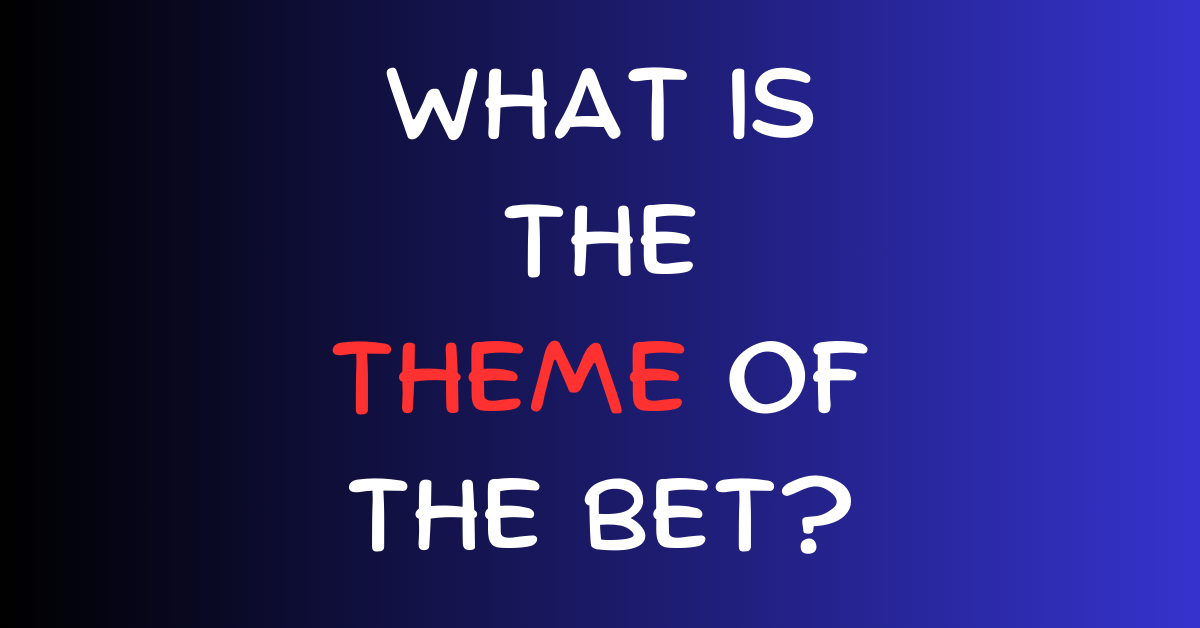The Significance of the Wager in “The Bet”
The wager in “The Bet” serves as a catalyst that propels the story forward and highlights the characters’ contrasting beliefs. By placing a value on isolation versus freedom, the bet symbolizes the opposing ideologies of the lawyer and the banker. The wager not only sets the parameters for their intellectual duel but also underscores the price they are willing to pay for their convictions.
As the story unfolds, the significance of the wager becomes increasingly apparent, revealing the moral dilemmas and philosophical debates at the core of the narrative. Through the bet, the concept of time as a force that shapes human nature is explored, raising questions about the true worth of material possessions and the futility of worldly pursuits. Ultimately, the wager in “The Bet” delves into the complexities of human nature and the consequences of extreme decisions made in the pursuit of intellectual superiority.
Exploring the Concept of Isolation in “The Bet”
In Anton Chekhov’s “The Bet,” the concept of isolation is vividly depicted through the confinement of the protagonist. As the story unfolds, the young lawyer voluntarily isolates himself from society for fifteen years, choosing solitude over the distractions of the outside world. This self-imposed isolation highlights the character’s strong desire for intellectual pursuit and introspection, ultimately leading to a profound exploration of human nature and the value of material possessions.
Throughout the narrative, the banker also experiences a form of isolation, albeit of a different nature. As he reflects on the consequences of his impulsive bet with the lawyer, the banker finds himself isolated in his own thoughts and moral dilemma. This sense of inner isolation serves as a stark contrast to the lawyer’s physical seclusion, emphasizing the theme of isolation in various dimensions within the story. As the two characters undergo profound transformations during the wager’s duration, Chekhov skillfully presents isolation as a powerful force that can shape one’s perspective and redefine the boundaries of human existence.
The Role of Time in “The Bet”
In Anton Chekhov’s short story “The Bet,” time plays a crucial role in the development of the plot and the characters. The story is framed by a bet between a banker and a young lawyer, who wager fifteen years of the lawyer’s life in exchange for two million rubles. As the years pass, time becomes a relentless force that weighs heavily on both the banker and the lawyer, shaping their decisions and moral outlook.
The passing of time highlights the effects of isolation and confinement on the lawyer as he spends fifteen years alone in a solitary confinement cell. Initially motivated by the desire for wealth and material possessions, the lawyer’s perspective transforms over time, emphasizing the futility of worldly possessions and the pursuit of knowledge and intellectual growth. The ticking clock serves as a constant reminder of the consequences of their bet, leading to a poignant exploration of human nature, morality, and the fleeting nature of time.
Morality and Ethics in “The Bet”
In “The Bet” by Anton Chekhov, the moral and ethical implications of the wager play a central role in the story. The banker’s decision to bet two million rubles against the lawyer’s willingness to spend fifteen years in solitary confinement raises questions about the value of human life and the limits of morality. As the banker reflects on the consequences of his actions over the years, he grapples with the realization that his pursuit of wealth and power has come at a great cost to his own conscience.
Throughout the story, the contrast between the banker’s materialistic beliefs and the lawyer’s pursuit of knowledge and personal growth serves as a fundamental dilemma regarding morality and ethics. The banker’s greed and lack of empathy towards the lawyer’s suffering highlight the moral decay that can result from a pursuit of wealth without regard for human life. Conversely, the lawyer’s transformation during his years of isolation underscores the ethical importance of self-reflection and the inherent value of human connection.
The Theme of Materialism in “The Bet”
In Anton Chekhov’s short story “The Bet,” the theme of materialism is prevalent throughout the narrative. The story revolves around a bet made between a banker and a young lawyer regarding the value of material wealth versus the value of intellectual growth and moral development. The banker wagers two million rubles that the lawyer will not be able to endure fifteen years of solitary confinement, emphasizing the materialistic aspect of the bet.
As the story unfolds, it becomes evident that the banker’s initial focus on material wealth and possessions starts to shift. Initially viewing the bet as a mere game of money and pride, the banker’s perspective evolves as he witnesses the lawyer’s transformation during his years of isolation. The theme of materialism is further highlighted as the banker reflects on the emptiness and futility of his own extravagant lifestyle compared to the lawyer’s pursuit of knowledge and personal growth in solitude.















